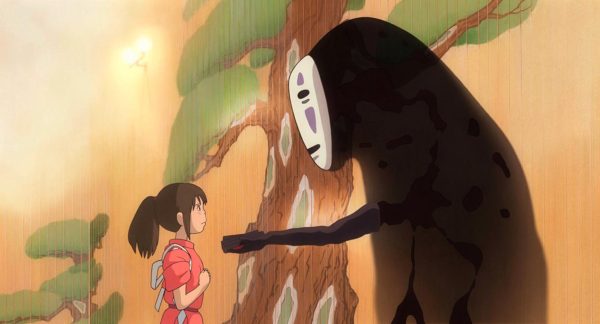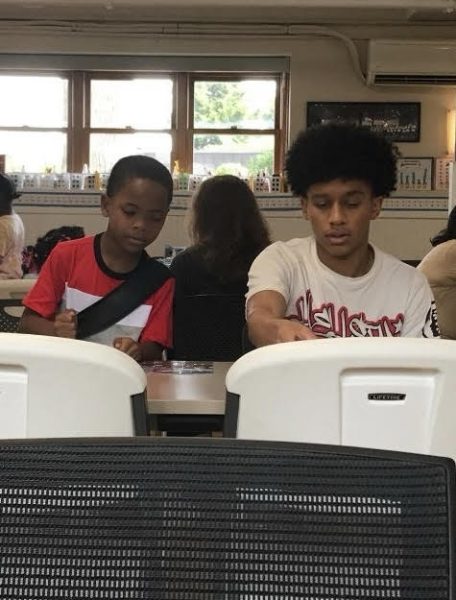Megan Thee Stallion’s trial: yet another testimony to the mistreatment of Black women in the media

Megan Thee Stallion, a rap superstar, was shot in the foot by Tory Lanez, a fellow rapper, on July 12, 2020, after attempting to exit a vehicle in which they were having an argument. Megan first told the police that the cause of her injuries was stepping on glass, and her justification for this was that she was scared of what the police would do to her and the others in the car if she told them she had been shot and that there was a gun in the car. In an interview with Gayle King, she said, “I was just trying to protect all of us because I didn’t want them to kill us,” and further explained that this ideology came from the history of police violence against the black community and that her fear was heightened by the police killing of George Floyd only about a month or so prior. It wasn’t until days after the shooting that Megan revealed she had been shot in a now deleted Instagram post, and it was more than a month after the shooting before she revealed her shooter was Tory Lanez on Instagram live. She revealed that as she was exiting the SUV, Tory yelled “Dance b***h,” then proceeded to shoot at her, and that he offered Megan and her friend who was in the car, a million dollars for them to keep quiet. Once Megan revealed she had gotten shot, some made jokes and memes about it on social media and insinuated that she was lying. In response, she tweeted, “Black women are so unprotected & we hold so many things in to protect the feelings of others w/o considering our own. It might be funny to y’all on the internet and just another messy topic for you to talk about but this is my real life and I’m real life hurt and traumatized.”
During her testimony in December 2022, Megan recounted how she received tons of hate online, even seeing messages that said she deserved to be shot, and further explained the damage this has caused to her reputation in the music industry. She testifies, “I can’t even be happy. I wish he would’ve shot and killed me if I knew I had to go through this torture.” In an interview with Rolling Stones, she describes how she was made into a villain and questions why people didn’t take what happened to her seriously. “Is it because I’m not light enough? Is it that I’m not white enough? … Do I not seem like I’m worth being treated like a woman?” In a guest essay for the New York Times titled “Megan the Stallion: Why I Speak Up for Black Women,” Megan explains that black women are seen as angry or threatening whenever they stand up for themselves, writing, “There’s not much room for passionate advocacy if you are a black woman.” Experts say that the root of Megan’s criticism stems from misogynoir, which is a dislike of, contempt for, or prejudice against black women. Melvin L. Williams, a professor at Pace University, explained that “a cycle of silence prevents many black women from sharing their experiences,” and when black women speak out, they are blackballed by the industry and face fewer professional opportunities. Tia Tyree, a professor at Howard University, said Megan “is infiltrating a very hypermasculine space” and so there are going to be negative responses to her making accusations against a black man, as “black women are expected to protect black men in society.” But we also can’t forget the role social media plays in dehumanizing black women for views and likes. Washington University in St. Louis professor Raven Maragh-Lloyd said, “Algorithms normalize the dehumanization and objectification of Black women for other people’s pleasure or ambivalence.” Unfortunately, in our society, misogynoir sells as society continues to exploit black women’s pain and ignore their cries for social justice.
A study published by the American Psychological Association came to the conclusion that black women are viewed as more similar to black men than as associated with the concept of a “typical woman”. Also, black women are considered more similar to black men than to white women or white men. Researchers of the study pointed out that, though black women face both racism and sexism, they are often overlooked in conversations and social justice campaigns on these types of discrimination. “The under differentiation of Black women from Black men may help explain why Black women face similar rates of racial disparities in traffic stops and arrests, but antiracist movements often focus on black men in the fight against police brutality,” said Josh Pasek, PhD, one of the researchers on the study and associate professor of communications studies at the University of Michigan. This association may be the reason for the exclusion of black woman in social justice movements and lead to the idea and overuse of the phrase “Strong Black Woman”. This is a phrase used to empower and uplift black women but some have argued that the use of the phrase doesn’t allow black women to be vulnerable as it establishes the expectation that black woman are more resilient than others even though they arguably face the most ridicule and contempt from society.
The Megan Thee Stallion and Tory Lanez case came to a close in December 2022, when Lanez was found guilty on three counts: assault with a semiautomatic firearm, carrying a loaded, unregistered firearm in a vehicle, and discharge of a firearm with gross negligence. He faces a maximum of 22 years in prison and possible deportation back to Canada. Megan finally got justice two years after the online bullying she has faced since coming forward with who her shooter was, consequently exposing the lack of remorse and empathy social media provides for black women. Malcom X once said that the most disrespected, unprotected, and neglected person in America is the black woman, and this case further highlights that.

Hi, my name is Isabella Dumenigo, and I’m a senior on Wildezine!! I’ve been a staff writer for three years, and this year I’m so excited...










